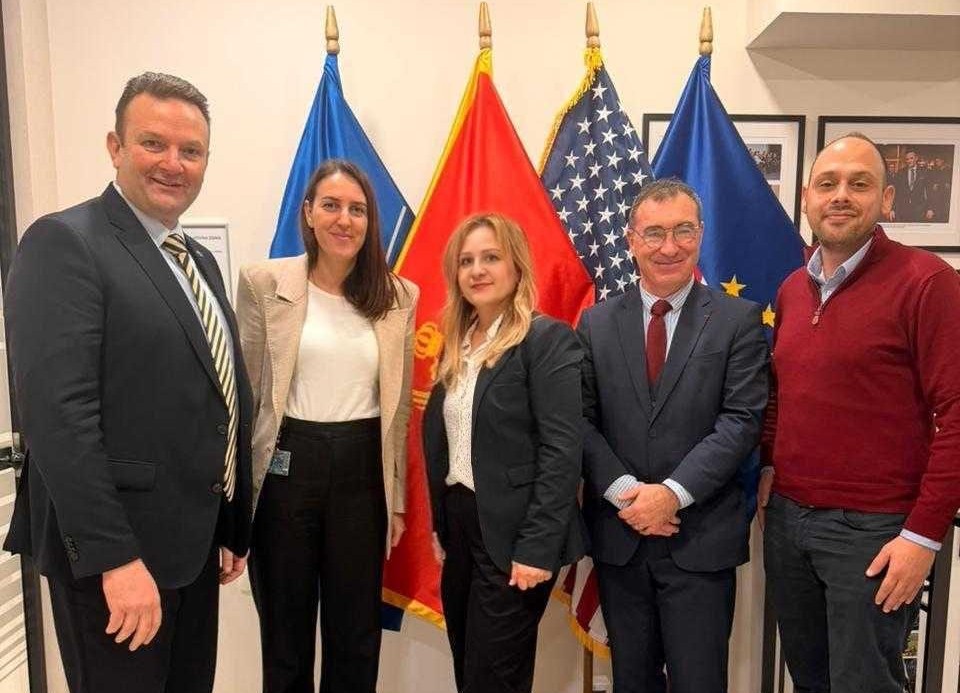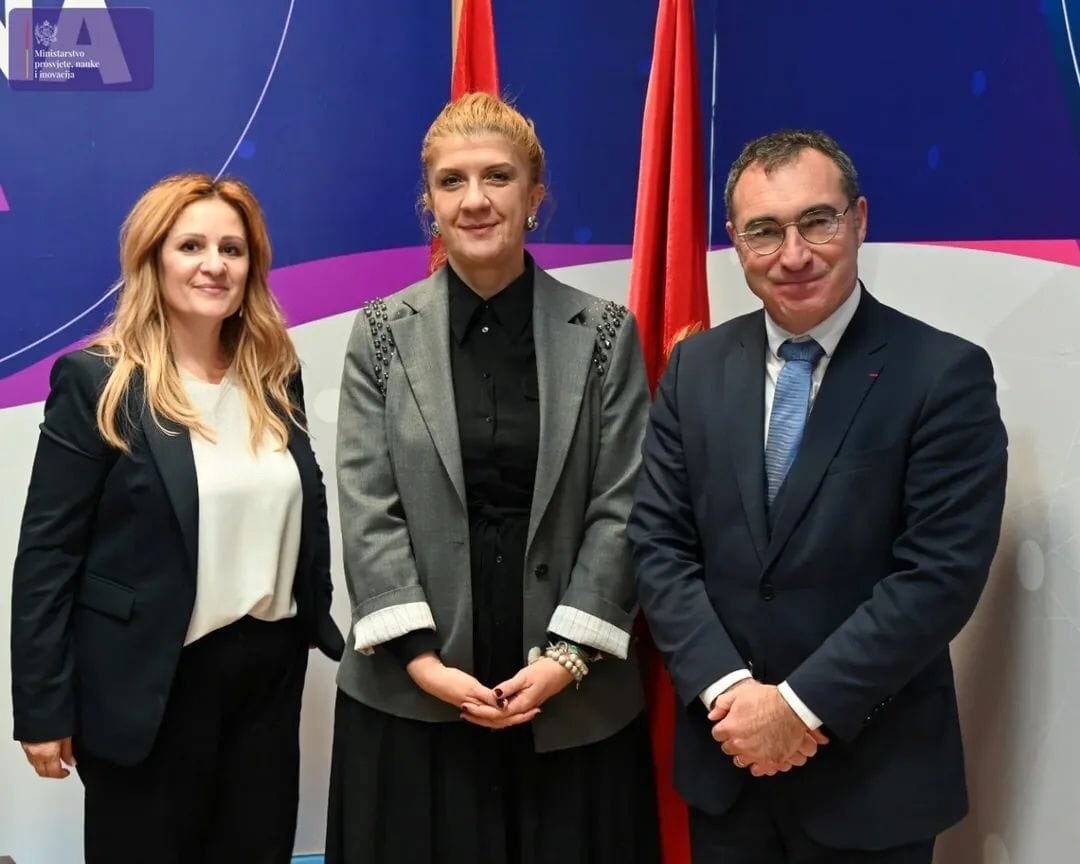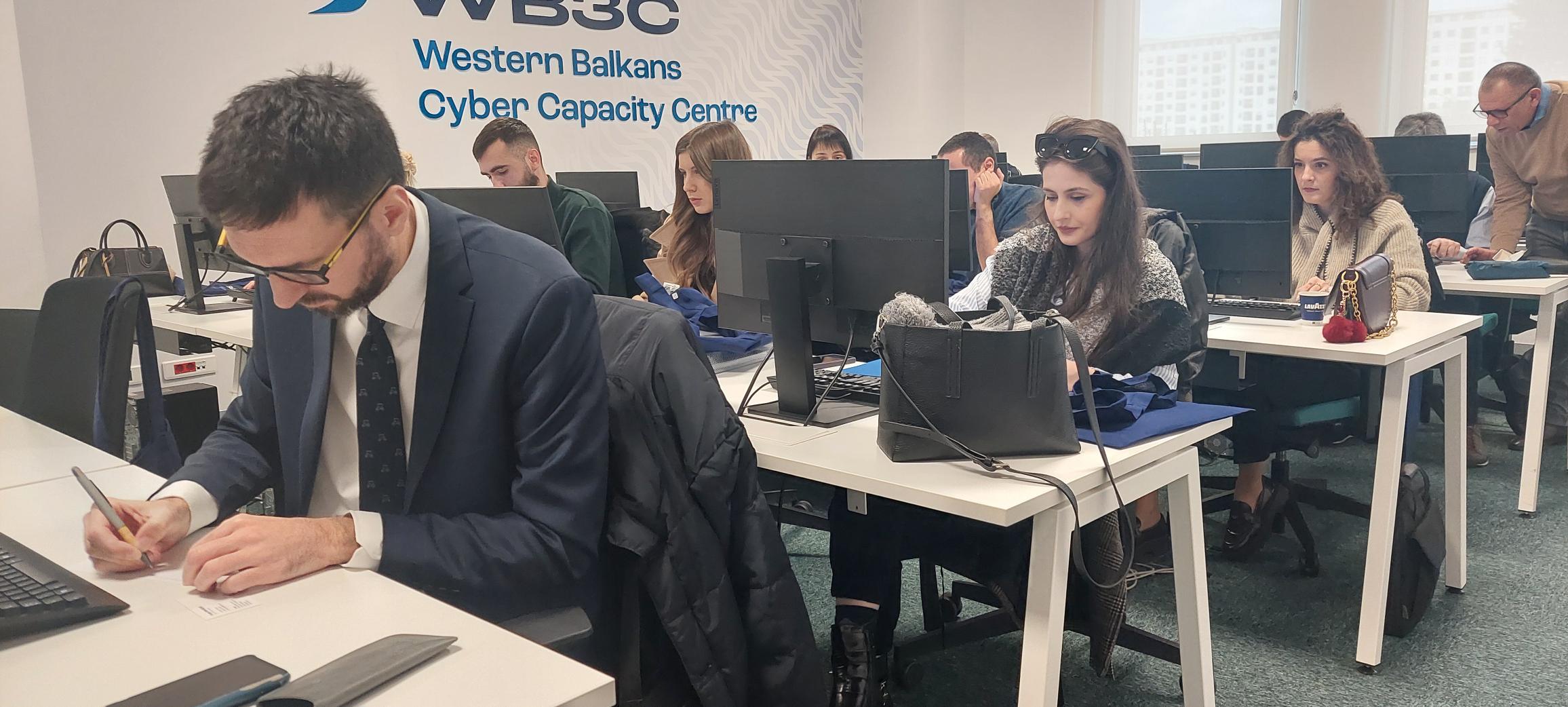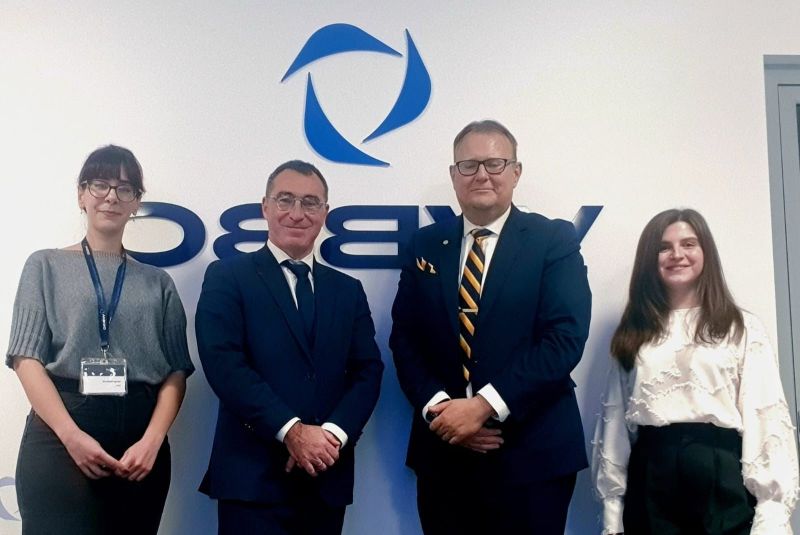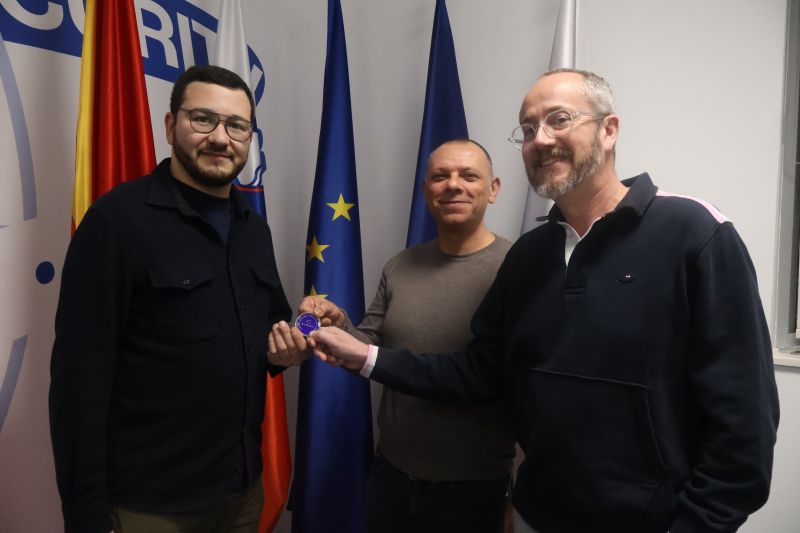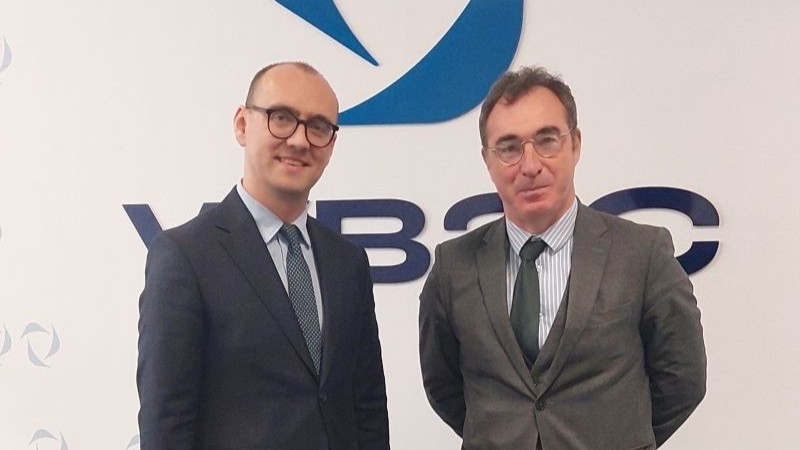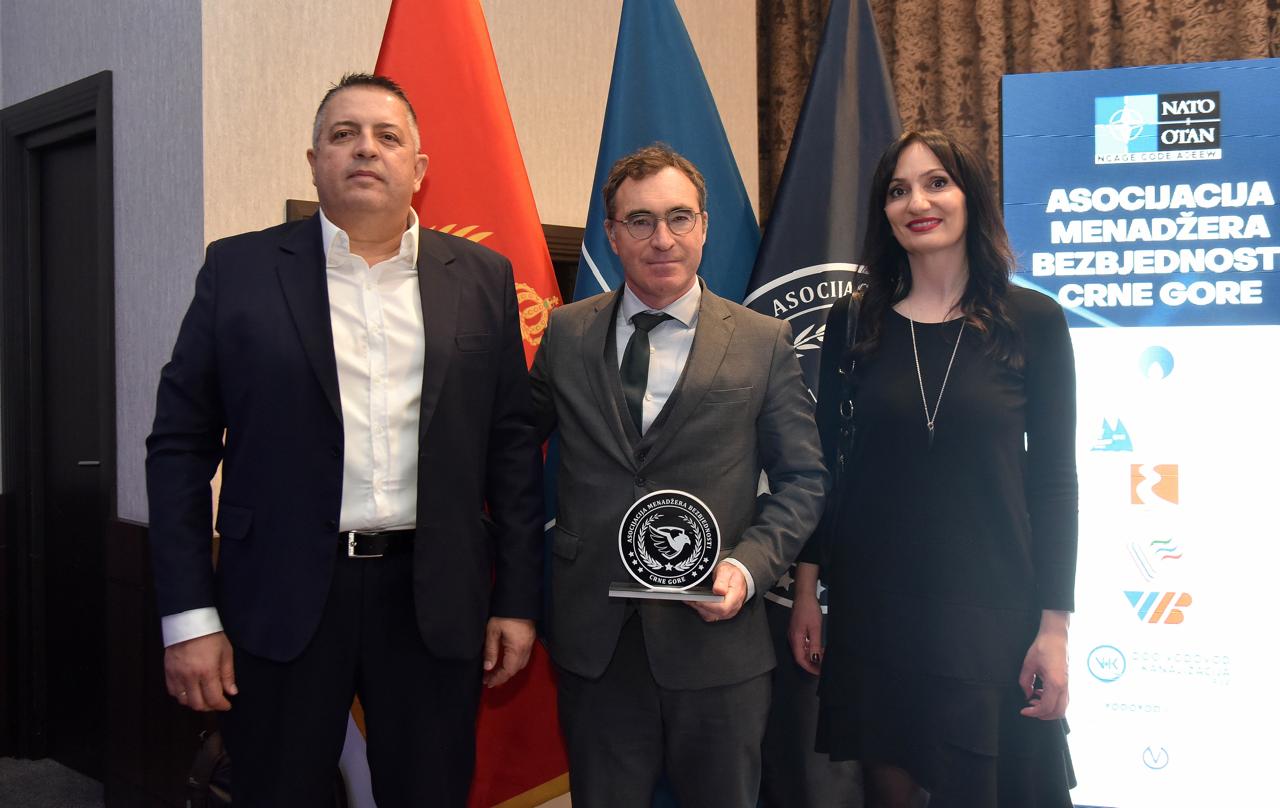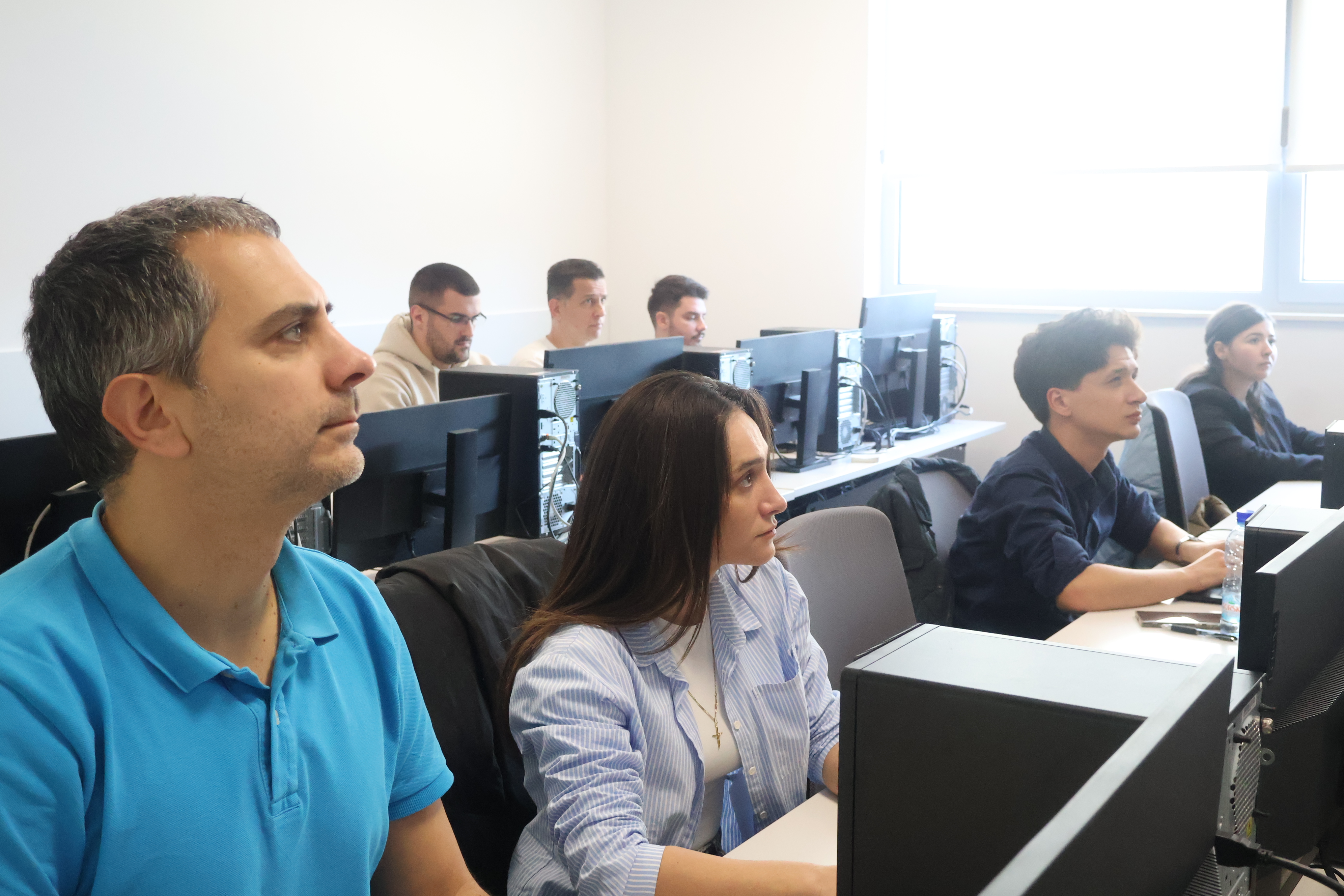05.02.2026
Combatting Disinformation and FIMI
A very productive meeting this morning with the Atlantic Council of Montenegro, led by Mr. Savo Kentera, President and CEO, together with his team Azra Karastanović and Draško Jabučanin. The Western Balkans Cyber Capacity Centre (WB3C) was represented by its Head Gilles Schwoerer and the team: Vanja Madzgalj MBE, Cyril C. and Yannick Casse.
Building on our previous engagements, including the national Round Table on Critical Infrastructure and the 2BS Forum, WB3C is further strengthening this collaboration to address pressing regional challenges.
Our discussions highlighted significant common interests in two crucial areas: critical infrastructure resilience and countering disinformation and foreign information manipulation and interference (FIMI).
This prospective partnership reflects a shared commitment to strengthening regional security and societal resilience against interference and information manipulation. We look forward to developing concrete actions and contributing meaningfully to these important efforts.
04.02.2026
Developing Future Cyber Talent Through Early Interventions in Schools
WB3C paid a visit to the Ministry of Education, Science and Innovation this week. We met with the State Secretary Calasan Tatjana to introduce WB3C’s work and share an overview of our plans for 2026, with a focus on education, young people and cooperation with universities. We talked about practical ways to support foundational awareness and cyber skills in schools and development of academic learning pathways such as micro-credentials and new degree programmes in cybersecurity and digital forensics in universities.
The meeting was also a chance to update the Ministry on how WB3C is developing as an international organization and how our role in Montenegro and the region is growing, as well as to explore how we could work more closely in the future.
We appreciated the open and constructive exchange, and the shared understanding that investing early in digital skills and cyber awareness really matters.
Looking forward to continuing the conversation and building on this momentum.
28.01.2026
Cyber Hygiene Training for Ministry of European Affairs of Montenegro
Today we start a short CyberHygiene training for colleagues at Montenegro’s Ministry of European Affairs. The training is led by WB3C-s in-house trainers Cyril C. and Yannick Casse.
Over the two days, we will work through the threats civil servants face most often — phishing, malware/ransomware and social engineering — and the practical habits that reduce risk without needing to advance technical skills such as: safer daily practices, data confidentiality and clear incident response basics.
A reminder worth repeating: cyber hygiene is organizational hygiene. Firewalls and policies help, but day-to-day resilience is built in small decisions made across the institution. Every civil servant counts.
A simple checklist that pays off:
⚠️ Pause before you click (especially “urgent” emails)
⚠️ Use strong passwords/passphrases + multi-factor authentication where available
⚠️ Keep devices and apps updated
⚠️ Report suspicious activity early—speed matters
Director Gilles Schwoerer greeted the participants by emphasizing that cybersecurity culture doesn’t start in the IT department, but it starts in each inbox. We are very pleased to welcome the behind-the-scenes force driving Montenegro's successful advancement towards the EU accession and to share that WB3C is expecting its first multi-year EU grant in March this year, aimed at supporting the region in meeting the requirements from the cyber agenda and strengthening its overall resilience, especially its critical infrastructure. We look forward to joining forces with ministries around the region in 2026 - a year expected to bring a dynamic plan of activities.
27.01.2026
Continuing Cooperation with ITU
We were pleased to welcome the International Telecommunication Union to WB3C again this week to continue our discussions on working together for the benefit of the region—particularly on cybersecurity for critical infrastructure. Our partnership, launched in 2024, is set to deepen as protecting critical infrastructure becomes an increasingly high priority across the Western Balkans, closely linked to the EU accession path and the need to strengthen resilience against a growing threat landscape. We met with Jaroslaw K. PONDER, Head of ITU Office for Europe and Valentina Stadnic, Programme Officer at the ITU Office for Europe, joined by Director Gilles Schwoerer and Project Assistant Vanja Radović on the WB3C side.
22.01.2026
Prepping Up for the Year Ahead
After the extended Christmas and New Year holidays, WB3C is back in track, using this quieter month to finalize our end-of-year reports, complete our dynamic 2026 work plan and upgrade our IT system ahead of the exciting activities we have coming up.
A big part of this “behind-the-scenes” work is strengthening our training environment.
A sneak peak into this summer: we’re preparing to host the first Forum InCyber Balkans (FIC Balkans) during which we will organize a Capture the Flag (CTF) challenge. FIC Balkans is a new event we are launching with Forum INCYBER (FIC) France, the Association of Security Managers of Montenegro and the Naučno-tehnološki park Crne Gore / Science Technology Park of Montenegro, bringing cyber businesses and institutions together for a cyber fair—and creating space for practical engagement, learning, and a bit of fun for our beneficiary countries.
In the photo, our team with colleague Samy SCANNA, member of the Gendarmerie Nationale reserve, who came to help with setting up the system.
Stay tuned for updates as we have a full year of news and activities ahead.
20.01.2026
Courtesy Visit by the Polish Embassy
Bartosz Marcinkowski, Chargé d’affaires a.i. at the Embassy of the Republic of Poland in Podgorica, paid his first courtesy visit to the Western Balkans Cyber Capacity Centre (WB3C) yesterday.
The visit was an opportunity to learn more about WB3C’s mission and ongoing work, and to explore potential areas for future cooperation. Mr. Marcinkowski met with Gilles Schwoerer, Head of WB3C and the management team, and was given a tour of the Centre’s premises.
We appreciate the Embassy’s interest and look forward to continuing the dialogue on shared priorities in building cyber capacity and resilience of the region.
18.12.2025
Visit to the Administration for Maritime Safety and Port Management
Today, our team Gilles Schwoerer and Maja Miranovic visited the Administration for Maritime Safety and Port Management in Bar, Montenegro, to explore potential cooperation on cybersecurity training, with a particular focus on strengthening the capabilities of their SOC team.
The discussion highlighted the value of a sectoral approach to protecting critical infrastructure, especially in sectors linked to Montenegro’s broader maritime and coastal economy. In the context of NIS2 implementation and the growing need for critical entities to align with international ISO standards, we reviewed priority needs and practical options for tailored capacity-building.
We were welcomed by Nexhat Kapidani, Deputy Director who introduced the team to the Administration’s facilities and operational context. The visit reinforced the potential for the maritime domain to be among the first sectors considered under WB3C’s future sector-focused work on cyber resilience.
16.12.2025
WB3C Receives an Appreciation Award from the Association of Security Managers of Montenegro
At a reception hosted by the Association of Security Managers of Montenegro on 15 December 2025, Western Balkans Cyber Capacity Centre (WB3C) was honored with an appreciation plaque presented by the Association’s President, Dragan Radulović, in recognition of our strong and effective cooperation in 2025.
Sincere thanks to Dragan and to the Association for this meaningful acknowledgment.
The reception was attended by our colleagues Gilles Schwoerer and Maja Miranovic, who have already begun working with the Association on the next major event we are developing together. While it is still early to share details, we are focused on building on this momentum and further strengthening our partnership through a major joint cyber initiative currently in preparation.
The Association of Security Managers of Montenegro is a significant professional platform that brings together security professionals from both the public and private sectors across Montenegro (over 120 members) and contributes to strengthening professional standards, security culture and cooperation with institutions and industry.
We look forward to continuing our close cooperation and joining forces in advancing security standards and resilience in Montenegro and the wider region.
15.12.2025
Second Cybersecurity Diploma Prep Course Completed
Our second Prep Course cohort (December) led by Ljuban Petrovic just finished two intense weeks of learning, practice and assessment. These ICT students showed up with curiosity and ambition to build their future career in cybersecurity field.
Now, the bigger picture:
We’ve completed two Prep Course cohorts (November + December), with 18 students in total from the Western Balkans. They have already taken the final test, and the final selection will be made in January for the free Cybersecurity University Diploma starting in February 2026, delivered by WB3C in cooperation with the Université de Technologie de Troyes (UTT).
What makes this course unique is that it’s not “just another training.” It’s a real academic pathway that helps students build lasting qualifications and it sits alongside our year round short courses as part of a wider talent strategy.
What this diploma prepares students for (entry roles):
🛡️ Security Administrator
🧠 SOC Analyst (Junior)
🧪 Junior Penetration Tester
🔍 Digital Forensics Technician
✅ Cybersecurity Auditor (Junior)
What happens next:
📝 January: final selection
🎓 February 2026: one-year long diploma course starts
Our cooperation with universities is an investment in long-term cybersecurity workforce development and we have more plans for the future how to make these courses available to more people in the region.
